<< Back
Starts: 10:00
Ends: 16:30
 A treasure hunt through Fort William, themed around archaeology, for children 12 and below to partake in. Children will need adult supervision as it's walking around Fort William. The sheet for the treasure hunt can be collected from the West Highland Museum, and a prize can be collected at the end.
A treasure hunt through Fort William, themed around archaeology, for children 12 and below to partake in. Children will need adult supervision as it's walking around Fort William. The sheet for the treasure hunt can be collected from the West Highland Museum, and a prize can be collected at the end.
Free/Donations welcome.
West Highland Museum
Phone 01397 702169
Email info@westhighlandmuseum.org.uk
https://www.westhighlandmuseum.org.uk/
Unfortunately this event has had to be cancelled
<< Back
Starts: 10:30
Ends: 13:30
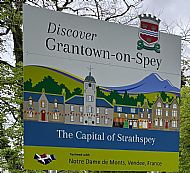 Guided walk of the historic 1765 planned town, woods, and walk to Old Spey Bridge over the River Spey.
Guided walk of the historic 1765 planned town, woods, and walk to Old Spey Bridge over the River Spey.
MHG15377 War Memorial
MHG6821 Spey Bridge
Meet at The War Memorial, The Square, Granton-on-Spey
Cost: £10
Children (10+) welcome if with adult
Dogs welcome if on lead
Level 1 walk
Booking, preferably by email, to:
Strathspey Tours
Phone 07876 235408
Email info@strathspeytours.com
www.strathspeytours.com
<< Back
Starts: 10:30
Ends: 15:00
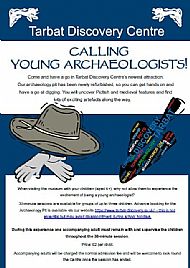 Calling Young Archaeologists! Our Archaeology Pit has been newly refurbished, so you get hands on and have a go at digging. You will uncover Pictish and medieval features and find lots of exciting artefacts on the way. Children must be supervised by accompanying adult. Only 3 children in the pit in each 30 minute session. Sessions can be booked online – recommended but not essential. Children and adults are welcome to visit the museum after the session.
Calling Young Archaeologists! Our Archaeology Pit has been newly refurbished, so you get hands on and have a go at digging. You will uncover Pictish and medieval features and find lots of exciting artefacts on the way. Children must be supervised by accompanying adult. Only 3 children in the pit in each 30 minute session. Sessions can be booked online – recommended but not essential. Children and adults are welcome to visit the museum after the session.
Children must be supervised by an adult
Cost: £2 / child; Accompanying adult: £5 (up to 65 years) or £4 (65+ years).
Bookings via the booking form on our website https://www.tarbat-discovery.co.uk/booking-form-childrens-archaeology-pit
Tarbat Discovery Centre
Phone 01862 871351
Email admin@tarbat-discovery.co.uk
www.tarbat-discovery.co.uk/
<< Back
Starts: 11:00
Ends: 12:00
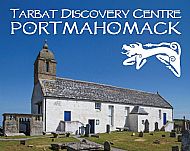 The guide will take you around the graveyard looking at family graves and funerary decorations. Event fee includes entrance into the museum.
The guide will take you around the graveyard looking at family graves and funerary decorations. Event fee includes entrance into the museum.
Meet at Tarbat Discovery Centre Admissions Desk
Cost: £5 adults; £4 teens; free to under 13
Children welcome with adults
Level 1 walk. The ground is covered in grass and uneven so appropriate footwear is required. Those taking part are doing so at their own risk.
Tarbat Discovery Centre
Phone 01862 871351
Email admin@tarbat-discovery.co.uk
www.tarbat-discovery.co.uk/
<< Back
Starts: 11:00
Ends: 12:00
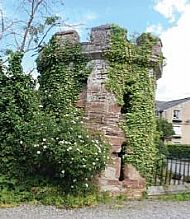 A gentle walk led by Jonathan McColl through the history found along Castle Street in Dingwall, from the Earls of Ross to the explorers of Africa.
A gentle walk led by Jonathan McColl through the history found along Castle Street in Dingwall, from the Earls of Ross to the explorers of Africa.
Meet at Castlebank House on High Street, Dingwall
Free / donations welcome
Children welcome if with adult
Suitable for wheelchair access
Dogs welcome if on lead
Level 1 walk
Dingwall Museum / Dingwall History Society
Phone 07754 625805
Email Jonathanmccoll@hotmail.com
www.dingwallmuseum.info
<< Back
Starts: 11:00
Ends: 16:00
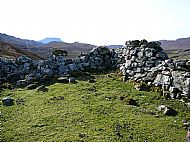 A dun, 18th century engineering, clearance townships, hydro schemes, shielings, a lost mill, even a possible hillfort, all within 2km. Walk led by Cathy Dagg.
A dun, 18th century engineering, clearance townships, hydro schemes, shielings, a lost mill, even a possible hillfort, all within 2km. Walk led by Cathy Dagg.
Meet at Loch Dubh Power Station
Free / donations welcome
Children welcome if with adult
Dogs welcome if on lead
Bring a packed lunch
Level 2 walk
Bookings to:
NoSAS
Phone 07717 863255
Email cathydagg@gmail.com
www.nosas.co.uk
<< Back
Starts: 14:00
Ends: 17:00
Walk to the counter bombardment Observation Post and Radar Station of the North Sutor battery in this walk led by Allan Kilpatrick of Historic Environment Scotland. We will be focusing on the remains to the north of the battery and not the battery itself. If timings allow I will take people to the WW1 hydrophone station.
Meet at Nigg Ferry
Free
Children welcome if with adult
Dogs welcome if on lead
Level 2 walk
Bookings, preferably by phone, to:
Historic Environment Scotland
Phone 07746 973812
Email Allan.kilpatrick@hes.scot
www.historicenvironment.scot/
<< Back
Starts: 19:00
Ends: 21:00
High Pasture Cave: Ritual, Memory and Identity in the Iron Age of Skye
HAF Keynote Talk by Steven Birch
Venue: Council Chambers, Glenurquhart Road, Inverness (use glass door entrance at west of building)
No need to book.
Suggested donation: £3
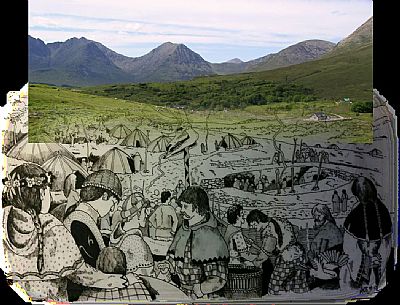
From the first steps taken into the darkness of High Pasture Cave, it was clear that this complex site would challenge current thinking on cave use and function in prehistory, and wider understanding of Iron Age cultural practice and beliefs. Situated in a dramatic location under the slopes of the Cuillin Mountains on Scotland’s Isle of Skye, this cave and its monumentalised environs were a focus for specific and special activities throughout the Iron Age - a venue for spectacular and extensive ceremonies featuring feasts, fire, crafts and the symbolic deposition of a plethora of artefacts and environmental materials, as well as human remains.
Recent research has led to a resurgence of interest in caves, in particular the place of these enigmatic sites in the worldviews of later prehistoric communities. Their investigation in the past has generally attributed a domestic function, comprising temporary homes and shelter for hunter-gatherers, farmers and pastoralists, and as workshops and places of refuge. However, it is now proposed that many caves, including High Pasture, were used for rituals involving the preparation and display of human remains, the deposition of material culture and other types of organic materials. These were clearly performative acts and the recurrent use of caves as the arenas for such performances, tells us much about their role in the cosmology of later prehistoric communities.
This presentation will discuss the key themes and avenues of research resulting from our investigations of this enigmatic site including the activities taking place there, and how the cave and its immediate surroundings became a repository of materials connected to processes of memory and identity spanning at least 800 years through the Iron Age, but with evidence of earlier use extending back to the Early Bronze Age. A significant element of these discussions will also focus on the people who inhabited this special place in the landscape, from its’ inception as a possible shrine used by the inhabitants of nearby settlements, to a major centre of aggregation attracting people from areas of Scotland beyond Skye.
Steven Birch is a freelance archaeologist working in the Highlands of Scotland and is co-director of the High Pasture Cave Project. He graduated in 2005 from the University of Aberdeen with an MA in Scottish Archaeology and his broad research interests include Scottish prehistory, with a particular focus on the use and function of cave and rockshelter sites. Recent excavations have included the Fiskavaig rockshelter in Skye and a number of old sea caves on the Black Isle as archaeological supervisor to the Rosemarkie Caves Project.
The final publication for High Pasture Cave will be published in early 2023.


